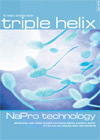Jan and James Burn, both pastors, have three children. This is the inside story of their painful progress since 1993 when family life became dominated by the management of seven-year-old David's malignant renal tumour. They embarked on a switchback of remission and relapse, relief and dread, plans unfulfilled and side effects unforeseen. Remarks by Christian friends were not always helpful.
As she watched David's suffering, Jan often felt powerless, exhausted and isolated in her own pain. Emotionally drained, it was a struggle to support all three children and to maintain some normality. An abnormal blood count might put a stop to a long anticipated treat. Exhaustion made it easy to skimp time or explanation for the other children, or to excuse the sick child's unacceptable behaviour but not theirs. David's father once had to remind him that the doctors had taken his kidney, not his manners, and he needed to apologise - which he did, strangely comforted by familiar rules in a world otherwise out of control. Marriage partners, too, need hard-to-find time to stay tuned, perhaps with differences of attitude to resolve as they support each other.
Jan Burn tells us honestly how awful all this has been. Aware that medical care saved David's life, she also saw his confidence and cooperation rocked when staff failed to treat him respectfully and truthfully. She emphasises the need for attentive listening by all concerned. There are other helpful passages on learning to be flexible, to forgive, to be freed from the guilt of feeling responsible for the illness and coping with all the related uncertainties. One of the hardest things still is to avoid overprotection of all three children, and to overlook their emerging independence in the twelve years since diagnosis.
The shadow remains, as recurrence is still not ruled out, but it is clear that the whole experience has been a journey into deeper faith and trust in God. Strategically placed and highly relevant Bible verses reveal where strength can be found to enable other affected families to stand up to all these stresses.
This little book fills a niche not adequately filled before, and is a must not only for parents in similar circumstances but for their medical and pastoral caregivers.
































